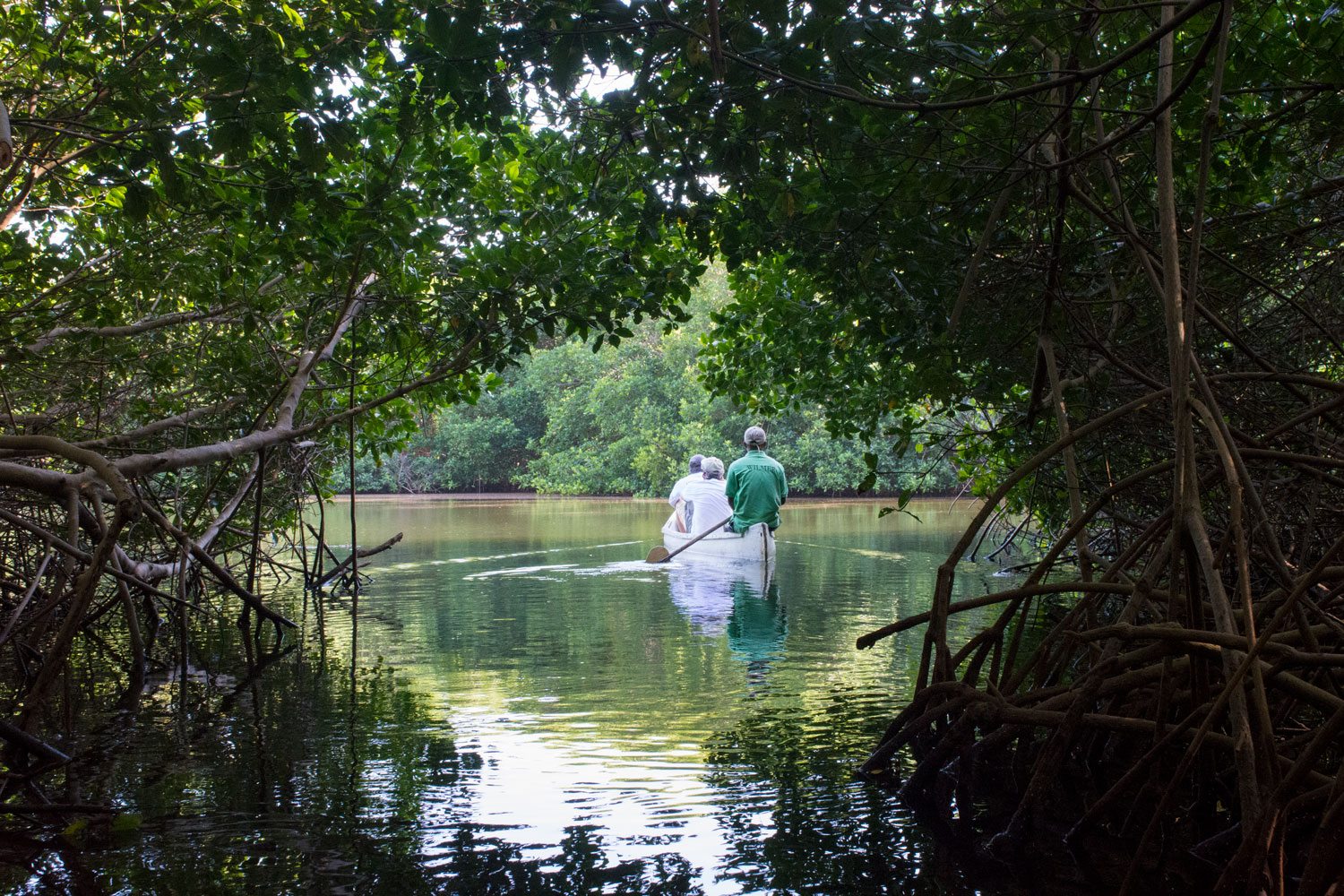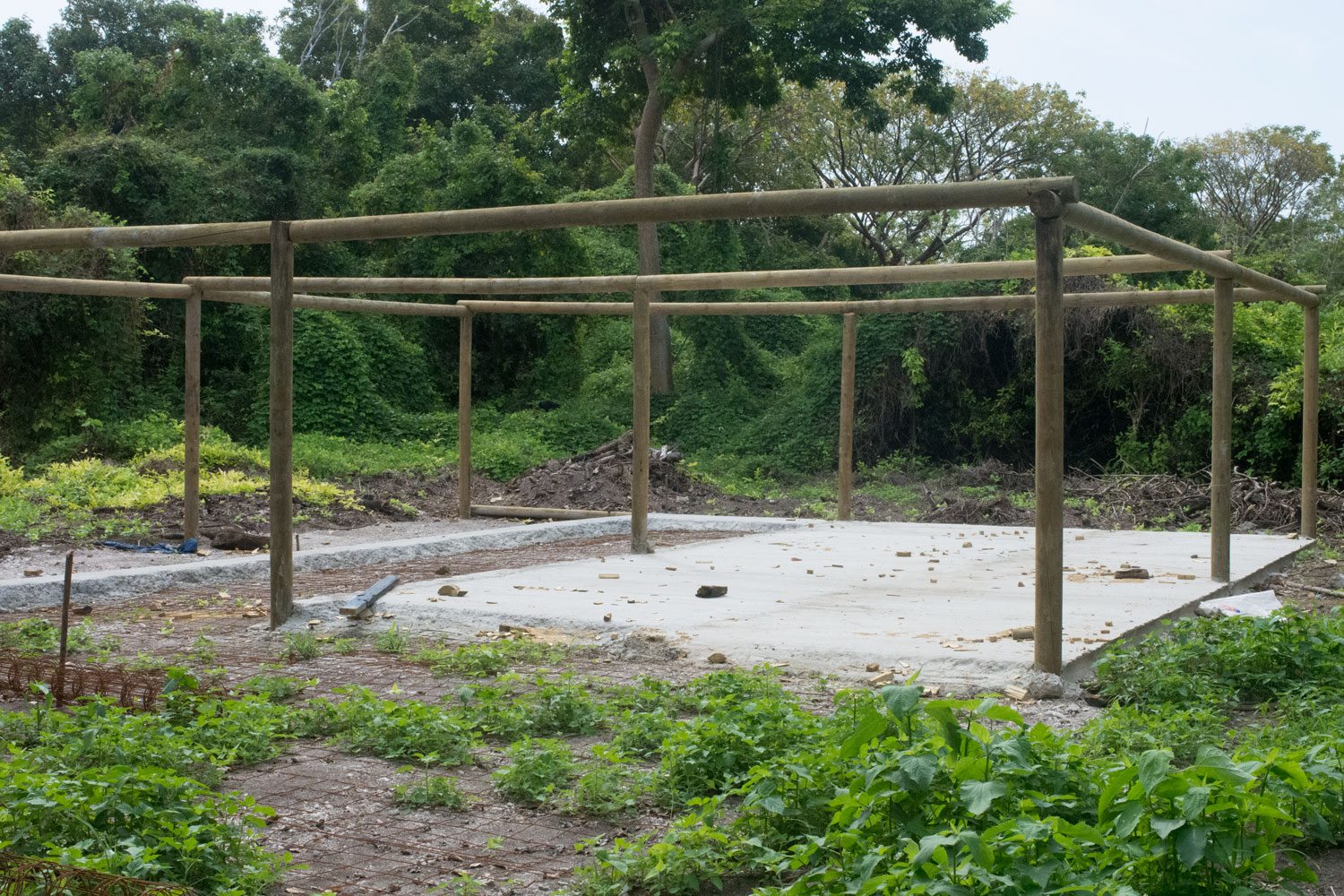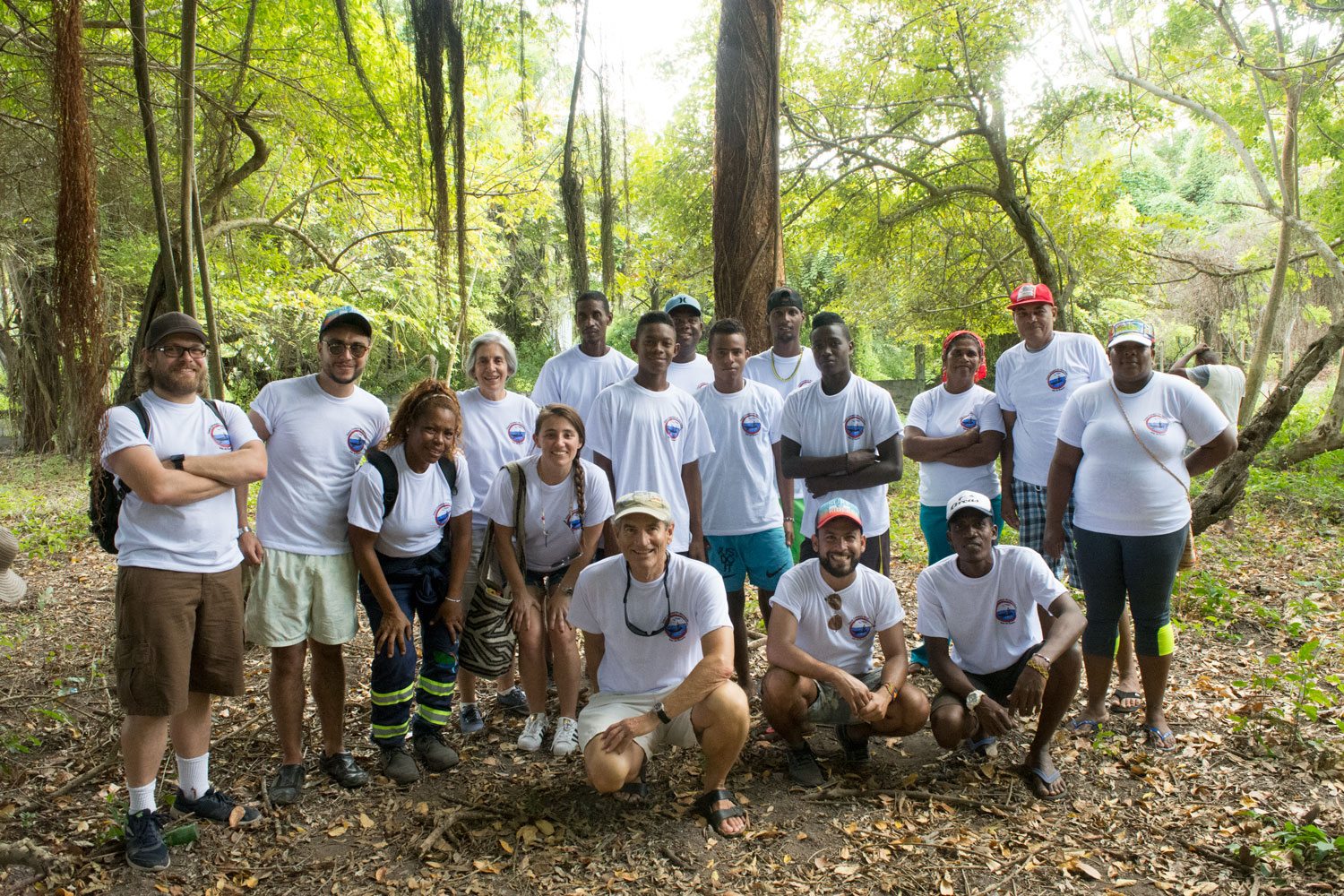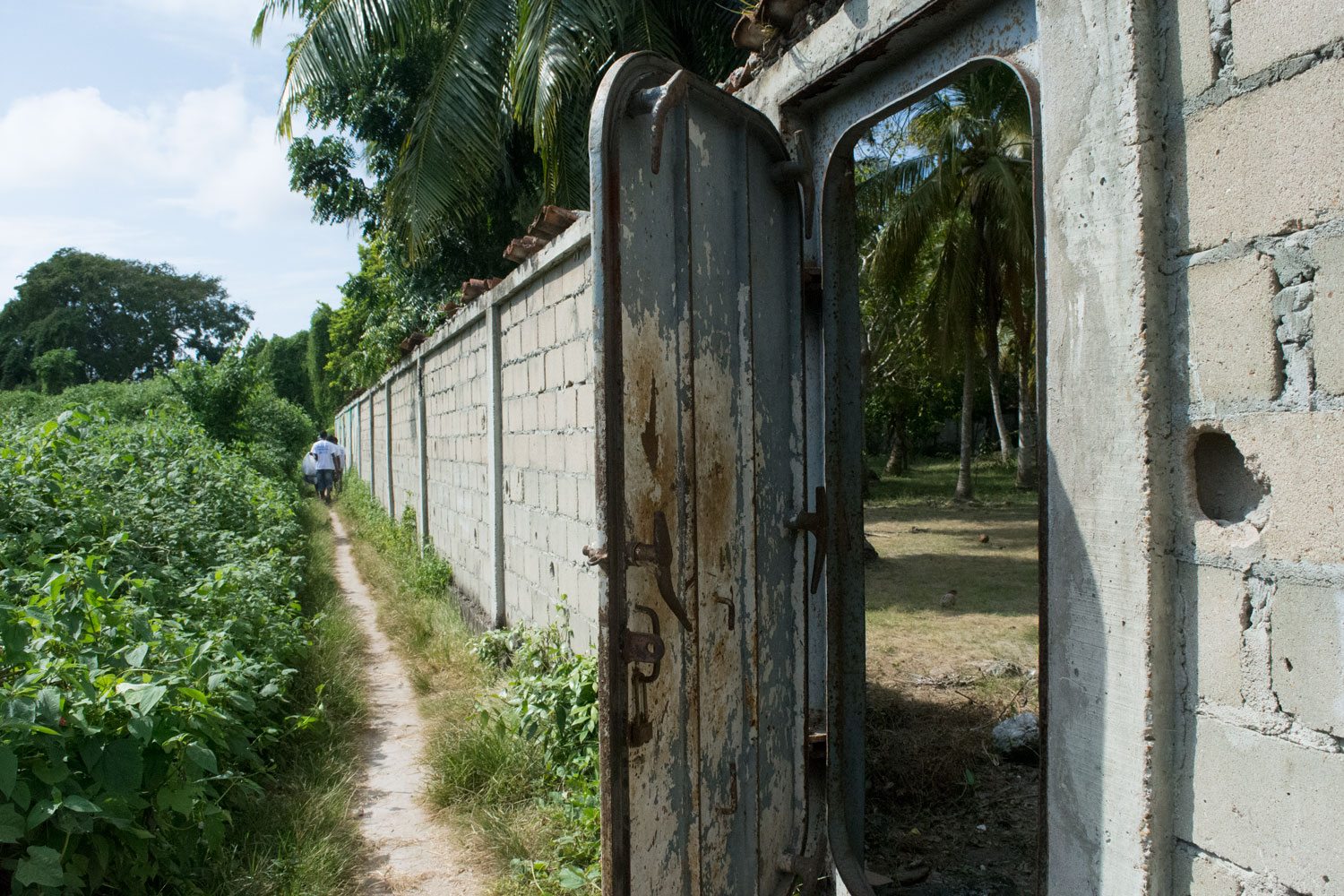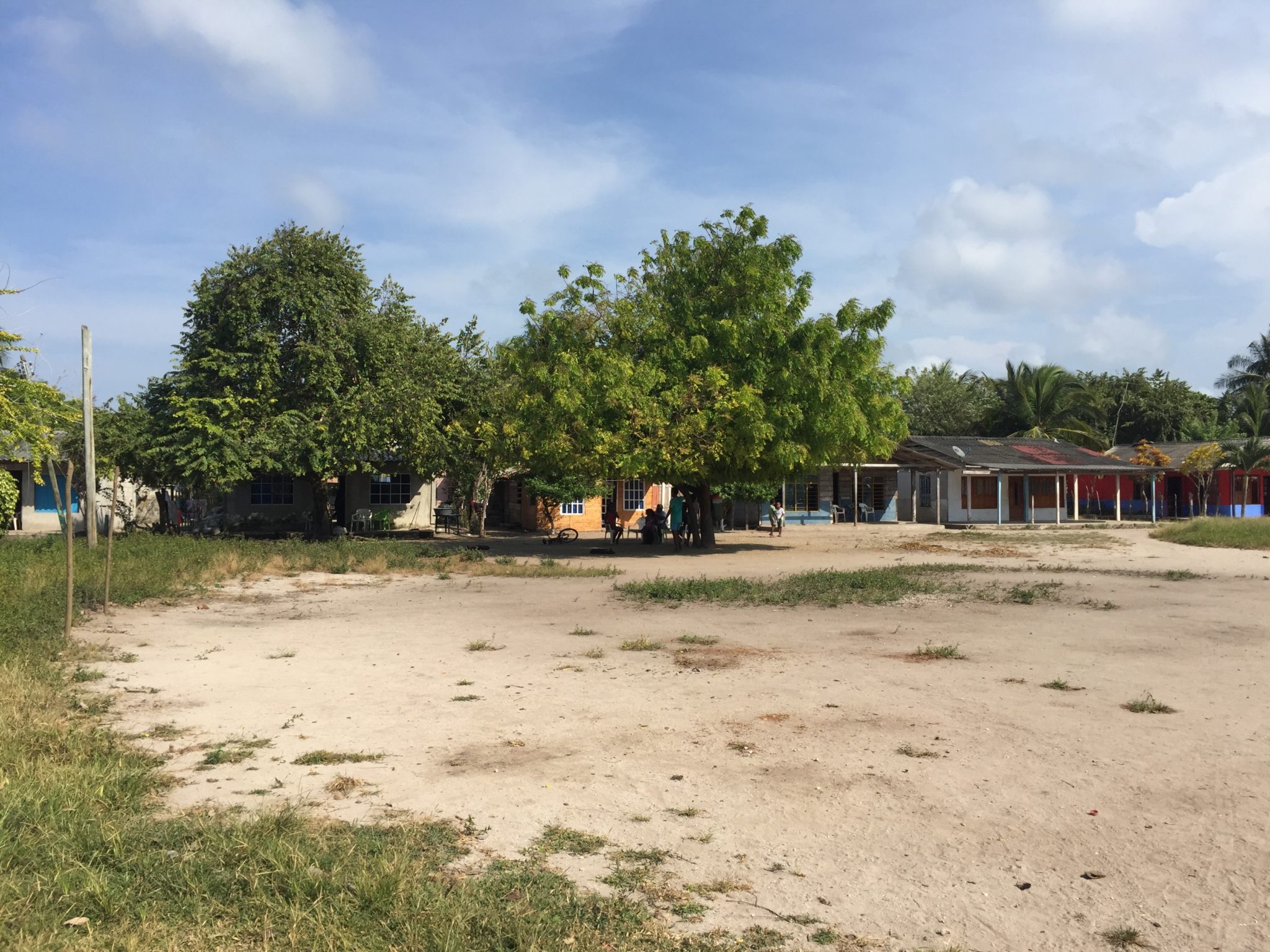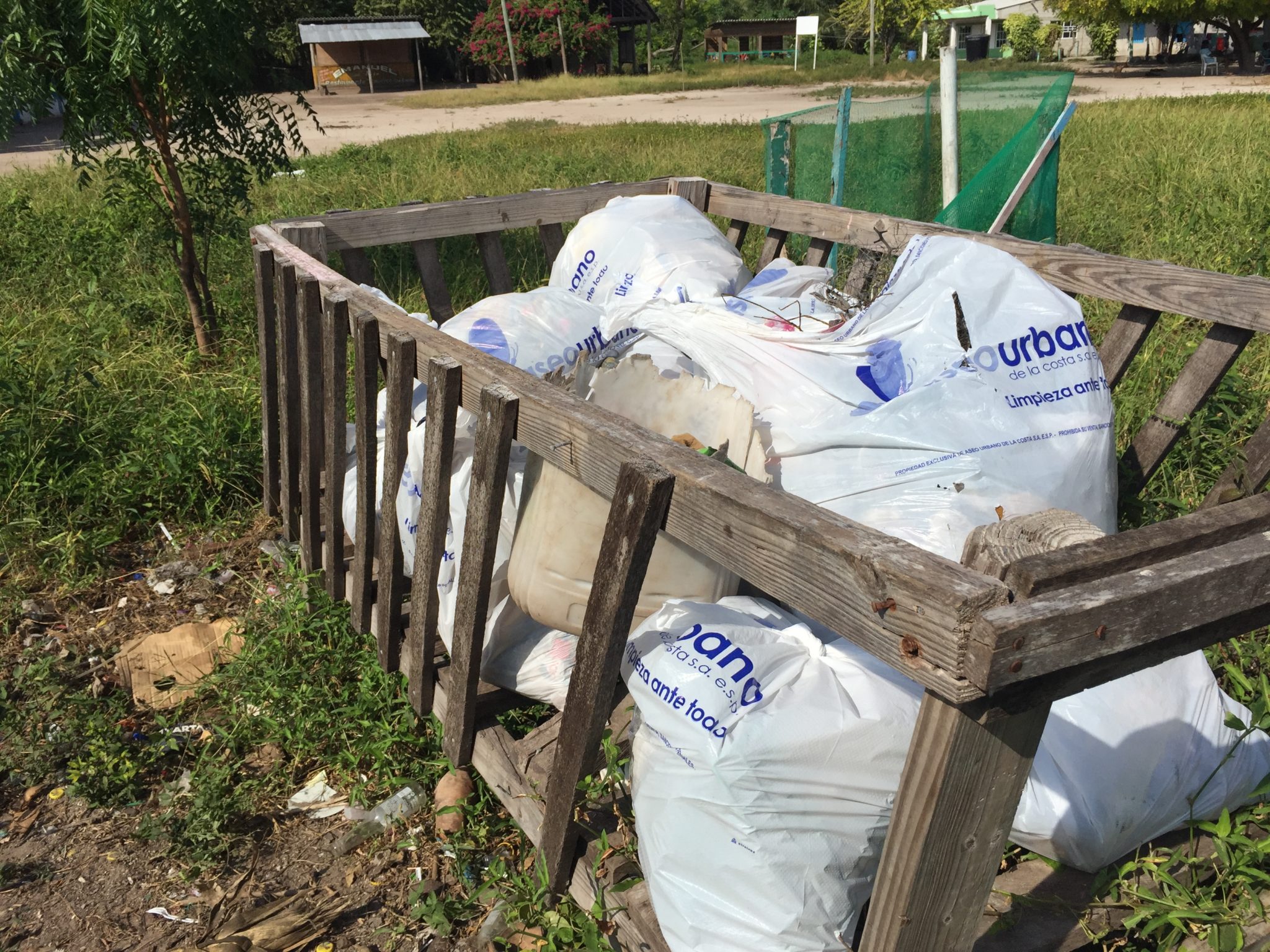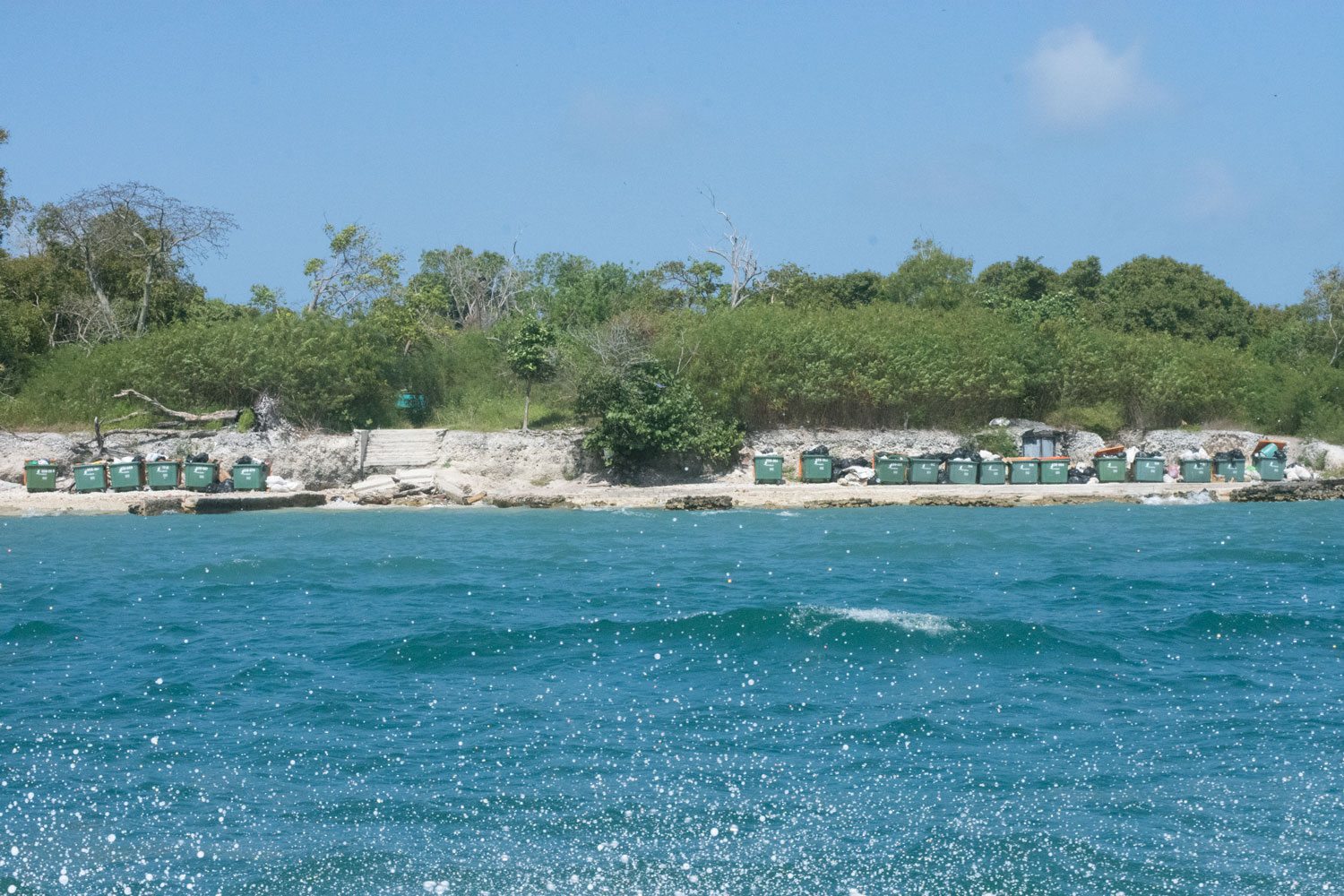Keeping beaches clean in Colombia
Seacology’s first project in Colombia is making great strides toward reducing pollution on and around one of the country’s most beautiful and biodiverse islands.
The Rosario Islands lie north of the nation’s Caribbean shoreline, surrounded by sapphire-blue water, barrier reefs teeming with life, and dense mangroves. About 60 miles from the port city of Cartagena, the islands are a popular but mostly undeveloped destination for tourists from Colombia and beyond. The marine area surrounding the archipelago is part of the country’s most visited national park, attracting thousands of divers, boaters, and other tourists each year.
Isla Grande, the largest of the Rosarios, is also home to a few hundred people in the village of Orika.
With minimal infrastructure and public services, however, pollution–especially plastic waste–has been a growing problem. Trash is hauled away to the mainland only every couple of weeks, and much of it is never collected in the first place. Some of this waste makes its way into the otherwise pristine mangrove and coastal habitats of the island or drifts off into the sea.
Our project, launched last February, is helping the Islaunika Foundation, a local NGO, to organize a waste-management system to tackle the pollution across the island. Our grant is funding the construction of a new waste-processing center, which will allow the community to sort different kinds of trash and process recyclable materials for resale. Community members are being trained to operate the equipment, which will provide a new source of income. Islaunika is also reaching out to Orika’s residents about how keeping the local habitats clean can mean opportunity for the village by encouraging tourist visits.
On a visit to Orika this month, members of Seacology’s staff found the community very engaged and committed to the effort’s success and the potential it represents for the budding ecotourism industry. Several community members operate basic eco-hotels and campsites around the islands, and recognize that clean beaches, mangroves, and trails attract more customers. Though the project involves many stakeholders—community leaders, the national park, the garbage company, and Islaunika among them—it is well organized and already producing noticeable results. We noticed significantly less waste in the mangroves than when we began the project, and the processing center isn’t even finished yet. We look forward to continuing this momentum.


